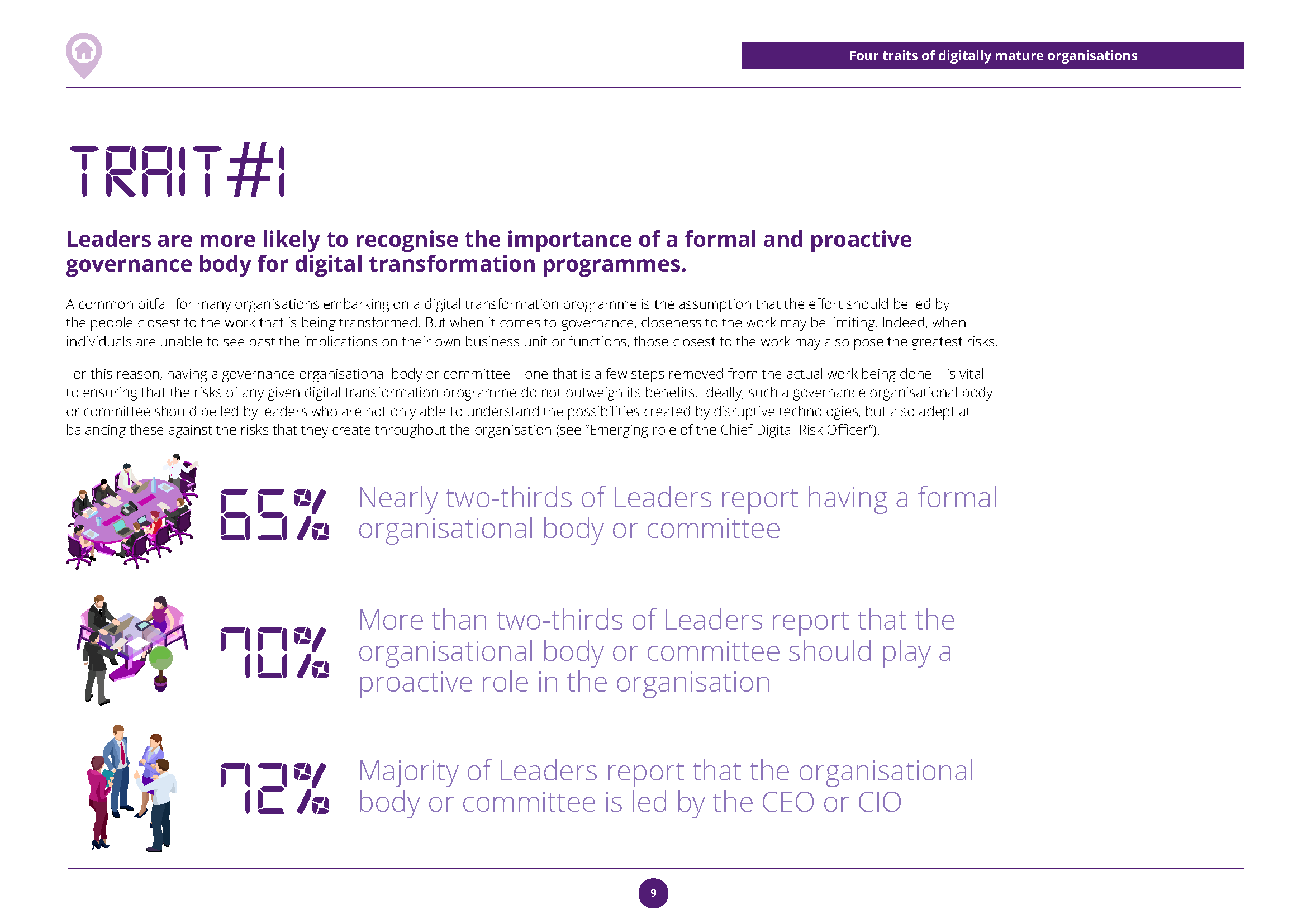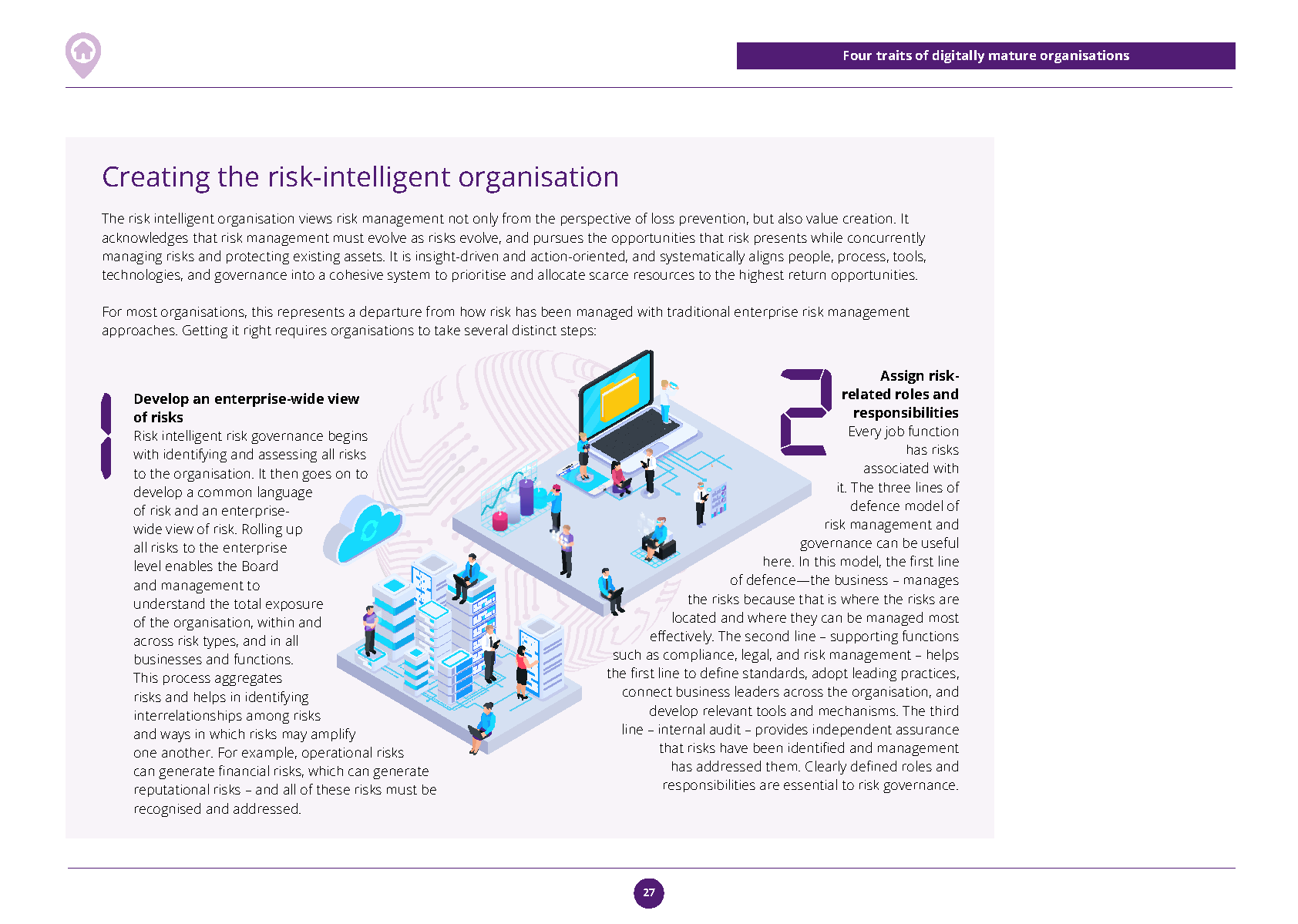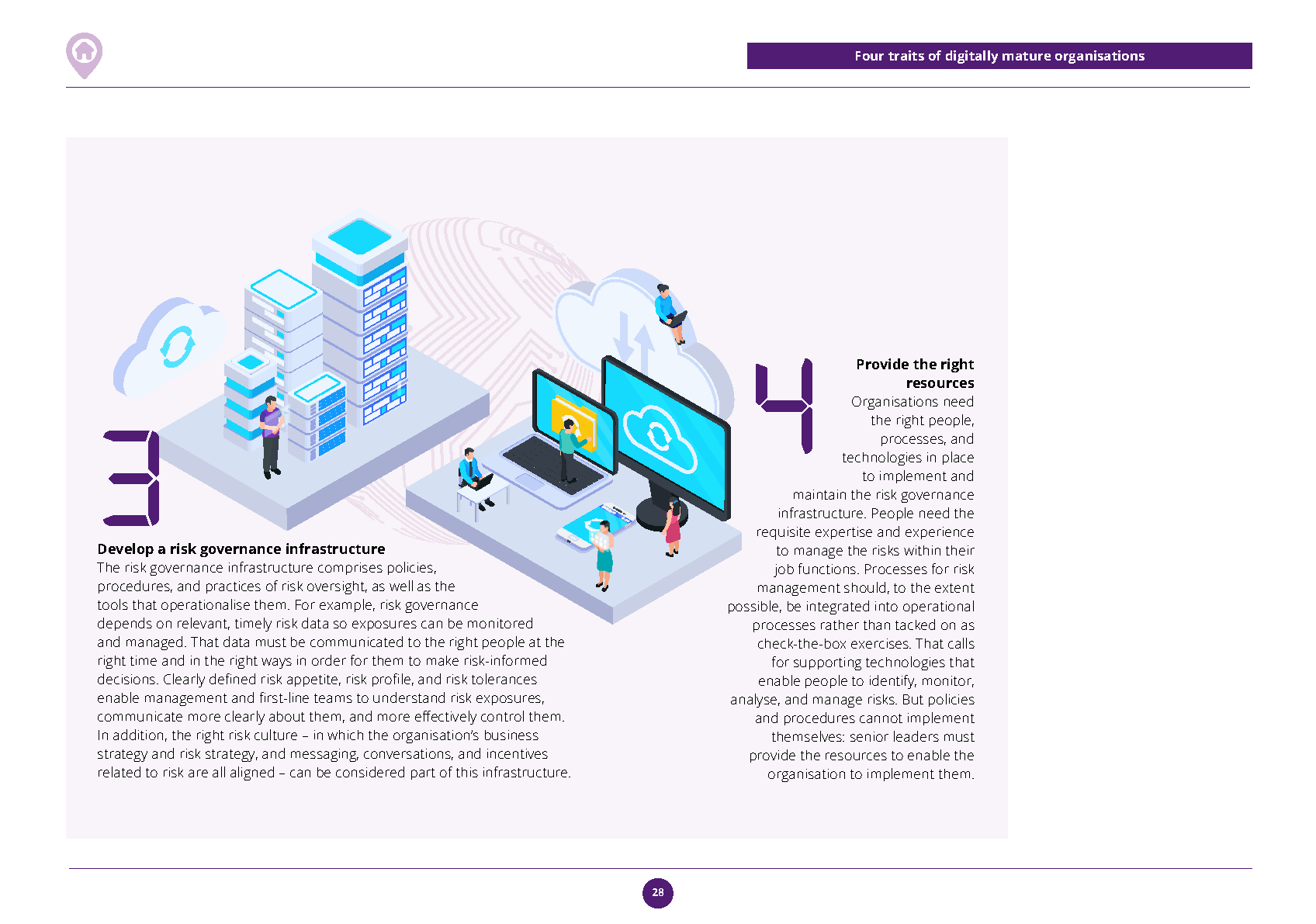Deloitte-SMU Collaboration
Deloitte-SMU Collaboration
Title of Project:
Adopting a Risk–Intelligent Approach to Digital Transformation: Four Traits of Digitally Mature Organisations

Industry Partners:

Faculty Collaborators:
- Dr Gary Pan, Professor of Accounting (Education)
- Dr Seow Poh Sun, Associate Professor of Accounting (Education)
- Dr Yuanto Kusnadi, Associate Professor of Accounting (Education)
- Dr Clarence Goh, Assistant Professor of Accounting (Practice)
Synopsis and Research Findings
With the proliferation of digital transformation programmes across organisations, leaders are beginning to understand just how complex these programmes are. Whether they are organisation-wide programmes or taking place in pockets throughout the organisation, digital transformation programmes come with high expectations, tight timelines – and are often fraught with change, uncertainty, and risk.
Deloitte Southeast Asia, in collaboration with SMU’s School of Accountancy Research Centre (SOAR), surveyed 48 Singapore-based executives to understand how they are managing the governance, risk, and compliance (GRC) aspects of digital transformation within their organisations. Conducted between the second and third quarters of 2021, the survey covered board member and executive level respondents across a range of different industry sectors. In the third quarter of 2021, the research team also conducted in-depth, one-on-one conversations with Singapore-based executives to gain more insight into how organisations are operationalising GRC aspects in their digital transformation programmes.
The research team’s objective was to understand how digitally mature organisations are managing the GRC aspects of their digital transformation programmes, and identify any traits or behaviours that could inform the development of best practices.

Research Findings
The research finds that digitally mature organisations – that is, organisations that report more advanced progress in their digital transformation journeys – display four markedly different traits when it comes to managing the GRC aspects of their digital transformation programmes.
In particular, they are more likely to recognise the importance of a formal and proactive governance body; regard technological readiness as their weakest governance link; place the ownership of risk identification and monitoring activities with individual business units; and be more acutely aware of the regulatory compliance complexity of their digital transformation programmes.
Please click here to download the full report.

